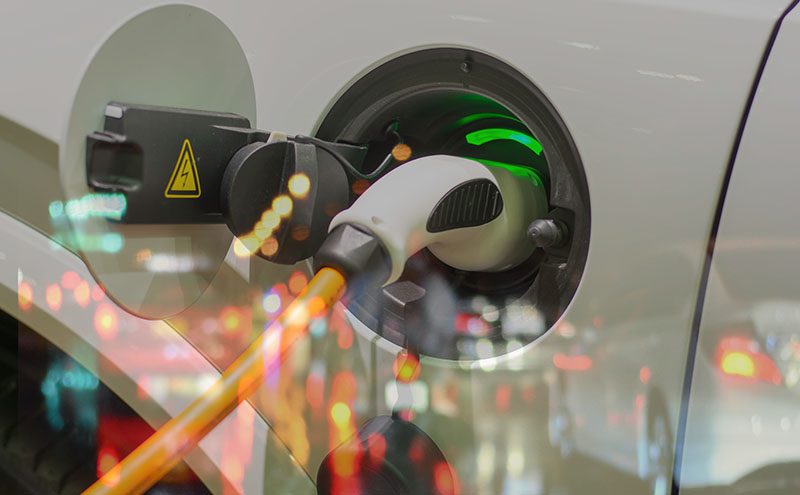
Trade organisation says a rapid shift to electric vehicles is possible in the UK but a clear Government strategy on charging roll-out is needed
The Renewable Energy Association, the UK’s largest trade association for renewable energy and clean technologies, launched its Forward View report on 28 September, which looks at the evolution of the UK’s electric vehicle market. It outlines the rapid pace of technological change expected by the organisation between 2017 and 2040, when the Government’s ban on the sale of new petrol and diesel vehicles will come into force.
The “Forward View” anticipates that consumer behaviour will change as electric vehicles become more widespread. The report anticipates:
– A significant increase in miles driven electrically, in fully electric and extended range EVs, prompting a shift away from traditional filling stations, with the majority of charging taking place at home and at work. This would be supplemented by public charging at supermarkets and other retail sites, public car parks, and at charging “hubs” along major motorways.
– Such charging could be supplemented by smart tariffs (which could allow consumers to charge at different prices, depending on need and grid capability), onsite renewable energy, and onsite battery storage
– The UK could grow its existing auto manufacturing supply base, particularly if new investment in battery manufacturing facilities is secured and a reliable and extensive charge infrastructure system is put in place to make EVs an easy option for consumers.
The REA is calling for key Government interventions to support this shift, including:
– Consistent minimum quantity and specification for EV charging at all new supermarkets, car parks, and other retail outlets over a certain size. Such sites should have a minimum level of EV charging installed, with the planning to add further capacity later
– Regulation to require the installation of three-phase electricity supply in all new homes and integrated charging into all residential developments
– Encouragement of the use of onsite renewables and energy storage at major charge stations to provide low-cost, low-carbon power and reduce grid stress
– The speedy enactment of the Smart Systems and Flexibility Plan launched by the Department for Business, Energy, and Industrial Strategy in July
If such changes are implemented the REA believes that electric and plug-in hybrid electric vehicles could make up 50 per cent of new vehicle sales in the UK by 2025.
The REA’s members are involved in the development of the UK’s charge infrastructure and the organisation’s Electric Vehicle Sector Group is looking at developing this sector. The Forward View has been informed by staff such as Head of Electric Vehicles Matthew Trevaskis and Senior Advisor Ray Noble, REA members, and other external organisations.
Commenting on the report, Matthew Trevaskis, Head of Electric Vehicles at the Renewable Energy Association said:
“This Forward View is our way of communicating that we think the shift to electric vehicles, in part or in whole, could take place much more rapidly than most of the public and many in Government currently think. It’s essential that Government is factoring in this historic shift into new building regulations, infrastructure investment, and energy policy so that the transition is as smooth as possible and Britain benefits from its current leadership position.
“One key point in this report is that the way people interact with charging will be substantially different than how they interact with petrol fill ups at present.
“By the time the Government’s 2040 diesel and petrol vehicle ban comes into play, we believe it to be likely that a viable alternative system will already be in place. The 2040 ban was a useful first step, and what’s needed now is a clear national and regional charging strategy.”







